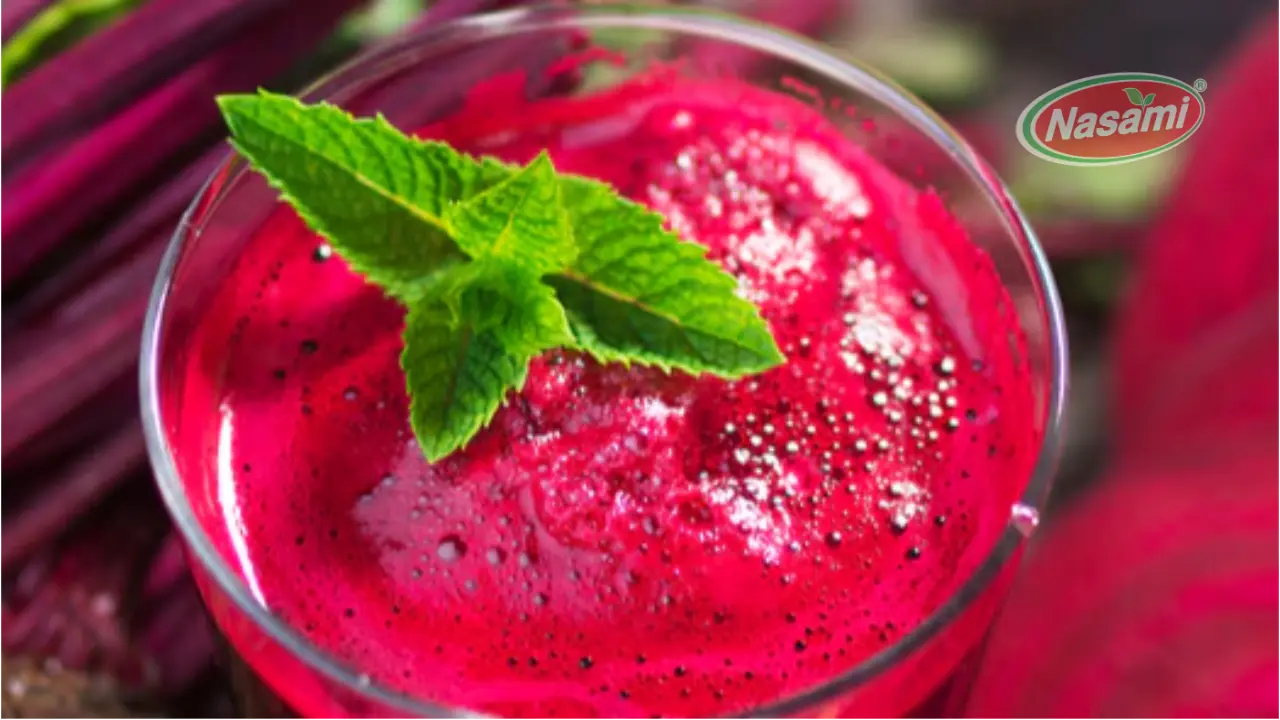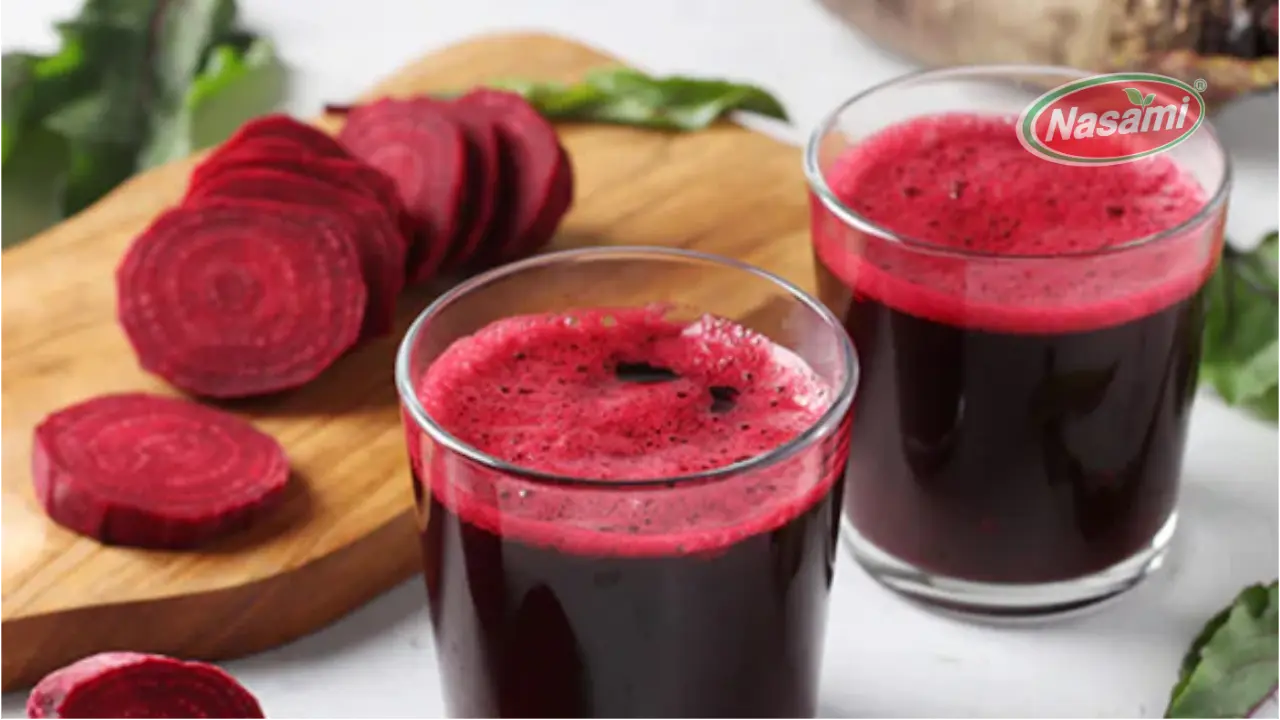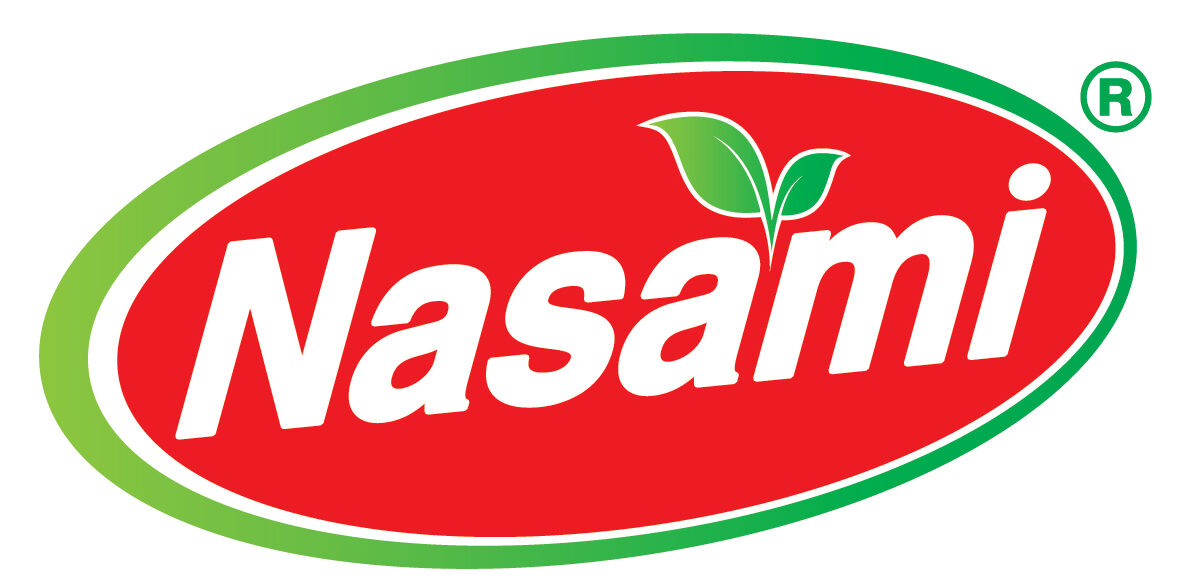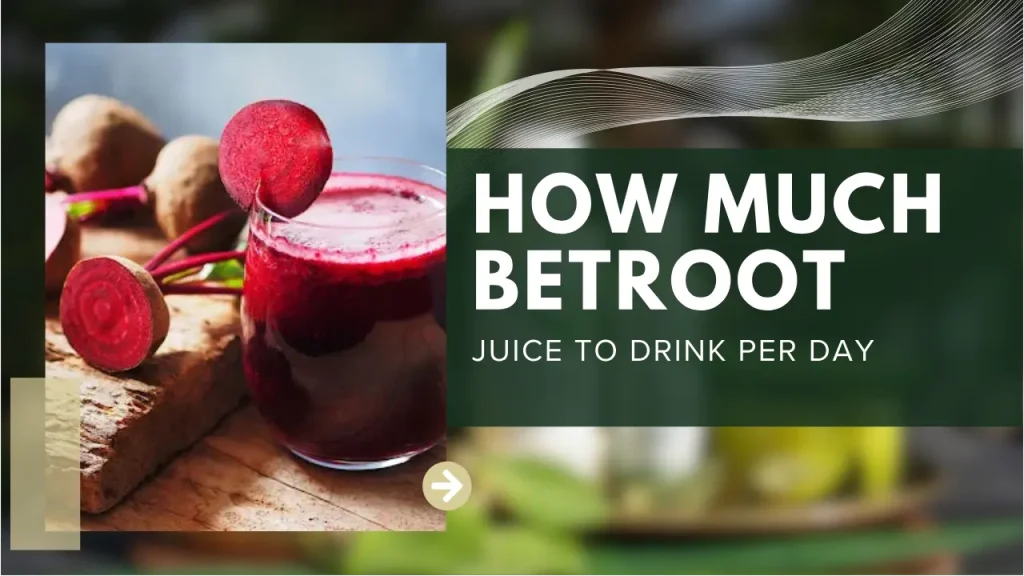Beetroot juice has gained significant popularity in recent years due to its potential health benefits and performance-enhancing properties. This vibrant, nutrient-rich beverage has captured the attention of health enthusiasts, athletes, and researchers alike. However, with its growing popularity comes the crucial question: How much beetroot juice should one consume daily to maximize its benefits without risking adverse effects?
Table of Content
ToggleThis comprehensive guide aims to provide clarity on the optimal daily intake of beetroot juice, exploring its benefits, potential risks, and considerations for various individuals.
How Much Beetroot Juice to Drink Per Day?
The ideal daily intake of beetroot juice can vary depending on individual health goals, physical condition, and tolerance. Here’s a detailed look at the recommended amounts for different purposes:

General Health Maintenance
For those looking to incorporate beetroot juice into their diet for overall health benefits, a moderate approach is recommended.
- Start with 100-150 ml (about 3-5 oz) per day
- Gradually increase to 250-500 ml (8-16 oz) over a few weeks
- Monitor your body’s response and adjust accordingly
Blood Pressure Management
Beetroot juice has shown promising results in reducing blood pressure due to its high nitrate content.
- Initial studies suggest 250-500 ml (8-16 oz) daily for noticeable effects
- Best consumed 2-3 hours before measuring blood pressure
- Consistent daily intake may lead to sustained benefits
Athletic
Athletes looking to boost their performance may benefit from a more structured intake:
- Pre-workout: 300-500 ml (10-16 oz) about 2-3 hours before exercise
- Regular intake: 150-300 ml (5-10 oz) daily for cumulative benefits
- Post-workout: 150-250 ml (5-8 oz) to aid in recovery
It’s important to note that individual responses may vary, and it’s always advisable to consult with a healthcare professional or a sports nutritionist before making significant changes to your diet or supplement regimen.
How Much Beetroot Juice to Drink Per Day NHS
The National Health Service [1] (NHS) in the UK provides general dietary guidelines but doesn’t offer specific recommendations for beetroot juice consumption. However, we can glean insights from their overall nutrition advice:
NHS Dietary Guidelines
The NHS emphasizes a balanced diet rich in fruits and vegetables, which can include beetroot juice as part of a varied intake.
- Aim for at least 5 portions of fruits and vegetables daily
- One portion of beetroot juice (150 ml or 5 oz) can count towards this goal
- Balance beetroot juice with whole fruits and vegetables for fiber intake
NHS Stance on Supplements
While not specifically addressing beetroot juice, the NHS generally advises:
- Obtaining nutrients from a balanced diet when possible
- Using supplements only when recommended by a healthcare professional
- Being cautious of excessive intake of any single food or drink
Considerations for Special Populations
The NHS provides specific dietary advice for certain groups:

Always consult with your healthcare provider for personalized advice, especially if you have any underlying health conditions or are taking medications.
How Much Beet Juice to Drink Per Day
When it comes to beet juice consumption, the optimal amount can vary based on individual health goals and tolerance. Here’s a breakdown of recommended intake for different purposes:
For General Health Benefits
- Start with 100 ml (about 3 oz) daily
- Gradually increase to 150-250 ml (5-8 oz) over a few weeks
- Consume consistently for best results
For Blood Pressure Management
- Aim for 250-500 ml (8-16 oz) daily
- Best consumed in the morning or 2-3 hours before blood pressure measurement
- Monitor blood pressure regularly to assess effects
For Athletic Performance
- Pre-workout: 300-500 ml (10-16 oz) about 2-3 hours before exercise
- Daily maintenance: 150-300 ml (5-10 oz) for sustained benefits
- Post-workout: 150-250 ml (5-8 oz) to aid recovery
It’s crucial to listen to your body and adjust intake accordingly. Some individuals may experience digestive discomfort with higher amounts, so it’s best to start low and increase gradually.
How Much Beetroot Juice to Drink a Day
Determining the ideal daily amount of beetroot juice depends on various factors, including your health status, fitness goals, and individual tolerance. Here’s a comprehensive guide to help you navigate your daily beetroot juice intake:

For Beginners
If you’re new to beetroot juice, it’s essential to start slowly and build up your tolerance:
- Week 1: Start with 50-100 ml (1.5-3 oz) daily
- Week 2-3: Gradually increase to 150-200 ml (5-7 oz)
- Week 4 onwards: Aim for 200-300 ml (7-10 oz) daily, if well-tolerated
For Regular Consumers
Those accustomed to beetroot juice can maintain a higher daily intake:
- General health: 250-500 ml (8-16 oz) daily
- Athletic performance: Up to 500 ml (16 oz), split between pre and post-workout
- Blood pressure management: 250-500 ml (8-16 oz), preferably in the morning
Considerations for Long-term Use
When incorporating beetroot juice into your long-term diet plan, keep these points in mind:
- Rotate with other vegetable juices to ensure a varied nutrient intake
- Monitor for any digestive discomfort or changes in urine color
- Consult with a healthcare professional for personalized advice, especially if you have any underlying health conditions
Remember, while beetroot juice offers numerous health benefits, it should be part of a balanced diet and not a replacement for whole fruits and vegetables.
How Much Beetroot Juice to Drink Each Day
Establishing a consistent daily intake of beetroot juice can help maximize its potential benefits. Here’s a detailed guide on how much beetroot juice to incorporate into your daily routine:
For Cardiovascular Health
Beetroot juice’s nitrate content can support heart health and blood pressure regulation:
- Recommended intake: 250-500 ml (8-16 oz) daily
- Best timing: Consume in the morning or 2-3 hours before blood pressure measurement
- Consistency is key: Regular daily intake may lead to more sustained benefits
For Cognitive Function
Emerging research suggests beetroot juice may support brain health:
- Suggested intake: 150-300 ml (5-10 oz) daily
- Timing: Consider consuming with breakfast or lunch
- Long-term approach: Incorporate into your diet consistently for potential cognitive benefits
For Detoxification and Liver Health
Beetroot’s antioxidants and betalains may support liver function and detoxification:
- Recommended amount: 100-200 ml (3-7 oz) daily
- Integration: Can be part of a morning detox routine or post-workout recovery
- Balanced approach: Combine with other liver-supporting foods for optimal benefits
When determining your daily beetroot juice intake, consider these factors:
- Individual tolerance
- Specific health goals
- Overall diet and nutrient intake
- Any existing health conditions or medications
Always start with smaller amounts and gradually increase to find your optimal daily intake. If you experience any adverse effects, reduce the amount or consult with a healthcare professional.
How Much Beet Juice to Drink a Day
Determining the right amount of beet juice to consume daily depends on various factors, including your health goals, physical condition, and individual tolerance. Here’s a comprehensive breakdown to help you find your optimal daily intake:
For General Health Maintenance
If you’re looking to incorporate beet juice into your diet for overall health benefits:
- Start with: 100-150 ml (3-5 oz) daily
- Gradually increase to: 200-300 ml (7-10 oz) over a few weeks
- Maximum recommended: Up to 500 ml (16 oz) for most adults
For Athletic Performance
Athletes and fitness enthusiasts may benefit from a more structured intake:
- Pre-workout: 300-500 ml (10-16 oz) about 2-3 hours before exercise
- Daily maintenance: 150-300 ml (5-10 oz) for sustained benefits
- Post-workout: 150-250 ml (5-8 oz) to aid recovery
For Specific Health Conditions
For those targeting specific health issues, intake may vary:
| Health Condition | Recommended Daily Intake |
|---|---|
| Hypertension | 250-500 ml (8-16 oz) |
| Diabetes | 100-200 ml (3-7 oz), monitor blood sugar |
| Liver support | 100-200 ml (3-7 oz) |
Always consult with a healthcare professional before using beet juice to manage any health condition, especially if you’re on medication.
How Much Beet Juice to Drink Each Day
Establishing a consistent daily intake of beet juice can help you maximize its potential benefits while minimizing any risks associated with overconsumption. Here’s a detailed guide on how to approach your daily beet juice intake:
For Beginners
If you’re new to beet juice, it’s crucial to start slowly and build up your tolerance:
- Week 1: Start with 50-100 ml (1.5-3 oz) daily
- Week 2-3: Gradually increase to 150-200 ml (5-7 oz)
- Week 4 onwards: Aim for 200-300 ml (7-10 oz) daily, if well-tolerated
For Regular Consumers
Those accustomed to beet juice can maintain a higher daily intake:
- General health: 250-500 ml (8-16 oz) daily
- Athletic performance: Up to 500 ml (16 oz), split between pre and post-workout
- Blood pressure management: 250-500 ml (8-16 oz), preferably in the morning
Considerations for Long-term Use
When incorporating beet juice into your long-term diet plan, keep these points in mind:
- Rotate with other vegetable juices to ensure a varied nutrient intake
- Monitor for any digestive discomfort or changes in urine color
- Consult with a healthcare professional for personalized advice, especially if you have any underlying health conditions
Remember, while beet juice offers numerous health benefits, it should be part of a balanced diet and not a replacement for whole fruits and vegetables.
How Much Beetroot Juice to Drink a Day to Lower Blood Pressure
Beetroot juice has gained attention for its potential to lower blood pressure, thanks to its high nitrate content. Here’s a detailed look at how much beetroot juice you should consume daily to potentially see benefits in blood pressure management:
Recommended Daily Intake
Research suggests the following guidelines for blood pressure management:
- Optimal amount: 250-500 ml (8-16 oz) daily
- Frequency: Consistent daily intake for best results
- Duration: Effects may be seen within a few hours, but long-term consumption is recommended for sustained benefits
Timing Considerations
When you consume beetroot juice can impact its effectiveness on blood pressure:
- Morning consumption: May provide all-day benefits
- 2-3 hours before blood pressure measurement: Can show acute effects
- Evening consumption: May support overnight blood pressure regulation
Factors Affecting Efficacy
Several factors can influence how beetroot juice impacts your blood pressure:
- Individual response: Some people may be more responsive to nitrates than others
- Current blood pressure levels: Those with higher blood pressure may see more significant effects
- Overall diet and lifestyle: Combining beetroot juice with a healthy diet and regular exercise may enhance its benefits
Always consult with a healthcare professional before using beetroot juice as a method to lower blood pressure, especially if you’re currently on blood pressure medication.
How Much Beet Juice is Safe to Drink Per Day
While beet juice offers numerous health benefits, it’s essential to consume it in moderation to avoid potential side effects. Here’s a comprehensive guide on safe daily intake levels:
General Safety Guidelines
For most healthy adults:
- Safe range: 250-500 ml (8-16 oz) daily
- Upper limit: Up to 500 ml (16 oz) for most adults
- Start low: Begin with 100-150 ml (3-5 oz) and gradually increase
Considerations for Special Populations
Certain groups may need to be more cautious with their beet juice intake:
| Population | Safe Daily Intake | Special Considerations |
|---|---|---|
| Pregnant women | Up to 200 ml (7 oz) | Consult healthcare provider |
| Diabetics | 100-200 ml (3-7 oz) | Monitor blood sugar closely |
| Individuals with kidney stones | Up to 150 ml (5 oz) | Due to oxalate content |
Potential Side Effects of Overconsumption
While beet juice is generally safe, excessive intake may lead to:
- Beeturia (red or pink urine)
- Temporary discoloration of stools
- Stomach discomfort or bloating
- Increased risk of kidney stones in susceptible individuals
Always listen to your body and adjust your intake if you experience any adverse effects. If you have any underlying health conditions or are taking medications, consult with a healthcare professional before adding beet juice to your daily routine.
How Much Beet Juice to Drink a Day to Lower Blood Pressure
Beet juice has gained recognition for its potential to lower blood pressure, primarily due to its high nitrate content. Here’s a detailed guide on how much beet juice you should consume daily to potentially see benefits in blood pressure management:
Optimal Daily Intake
Research suggests the following guidelines for using beet juice to lower blood pressure:
- Recommended amount: 250-500 ml (8-16 oz) daily
- Minimum effective dose: Some studies show benefits with as little as 100 ml (3.4 oz)
- Maximum suggested intake: Up to 500 ml (16 oz) for most adults
Timing and Frequency
When and how often you consume beet juice can impact its effectiveness:
- Best timing: Morning consumption or 2-3 hours before blood pressure measurement
- Frequency: Daily consumption is recommended for sustained benefits
- Duration: Effects may be seen within a few hours, but long-term use may provide more stable results
Factors Influencing Efficacy
Several factors can affect how beet juice impacts your blood pressure:
- Individual response: Some people may be more sensitive to nitrates than others
- Current blood pressure levels: Those with higher blood pressure may see more significant effects
- Overall diet and lifestyle: Combining beet juice with a healthy diet and regular exercise may enhance its benefits
- Consistency: Regular, daily consumption tends to yield better results than sporadic intake
Always consult with a healthcare professional before using beet juice as a method to lower blood pressure, especially if you’re currently on blood pressure medication or have any underlying health conditions.
How Much Beetroot Juice Should I Drink Per Day
Determining the right amount of beetroot juice for your individual needs depends on various factors, including your health goals, physical condition, and personal tolerance. Here’s a comprehensive guide to help you find your optimal daily intake:
For General Health Maintenance
If you’re looking to incorporate beetroot juice into your diet for overall health benefits:
- Start with: 100-150 ml (3-5 oz) daily
- Gradually increase to: 200-300 ml (7-10 oz) over a few weeks
- Maximum recommended: Up to 500 ml (16 oz) for most adults
For Specific Health Goals
Depending on your health objectives, you may need to adjust your intake:
| Health Goal | Recommended Daily Intake |
|---|---|
| Blood pressure management | 250-500 ml (8-16 oz) |
| Athletic performance | 300-500 ml (10-16 oz), split pre and post-workout |
| Detoxification | 100-200 ml (3-7 oz) |
Considerations for Personalized Intake
When determining your ideal daily beetroot juice consumption, consider these factors:
- Individual tolerance: Start low and increase gradually to assess your body’s response
- Existing health conditions: Consult a healthcare professional if you have any underlying health issues
- Medication interactions: Some medications may interact with beetroot juice, particularly blood thinners
- Overall diet: Ensure beetroot juice complements, rather than replaces, a balanced diet
Remember, while beetroot juice offers numerous health benefits, it’s essential to listen to your body and adjust your intake accordingly. If you experience any adverse effects, reduce the amount or consult with a healthcare professional.
How Much Beetroot Juice Should You Drink Per Day
Determining the optimal daily intake of beetroot juice depends on various factors, including your health goals, physical condition, and individual tolerance. Here’s a comprehensive guide to help you navigate your daily beetroot juice consumption:
General Recommendations
For most healthy adults:
- Minimum effective dose: 100-150 ml (3-5 oz) daily
- Average recommended intake: 250-300 ml (8-10 oz) daily
- Maximum suggested intake: Up to 500 ml (16 oz) daily
Tailoring Intake to Specific Goals
Your optimal beetroot juice intake may vary based on your health objectives:
- Blood Pressure Management:
- Recommended intake: 250-500 ml (8-16 oz) daily
- Best timing: Consuming before meals or in the morning
- Athletic Performance:
- Pre-workout: 150-300 ml (5-10 oz) 30-60 minutes before exercise
- Post-workout: Additional 150-200 ml (5-7 oz) within 30 minutes after exercise
- Detoxification:
- Start with: 100-200 ml (3-7 oz) daily
- Increase water intake concurrently for flushing toxins
Personalizing Your Beetroot Juice Intake
Consider these factors when determining your daily beetroot juice consumption:
- Tolerance: Start with a small amount and gradually increase to assess tolerance
- Health conditions: Consult a healthcare provider if you have any medical concerns
- Medication interactions: Be cautious if taking medications that may interact with beetroot juice
- Overall diet: Use beetroot juice as a supplement, not a replacement, for a balanced diet
Monitoring and Adjusting
It’s crucial to listen to your body and adjust your beetroot juice intake accordingly:
- Watch for any adverse effects like gastrointestinal discomfort or changes in urine color
- If you experience issues, reduce the amount consumed or seek medical advice
- Keep track of how your body responds to different intake levels for optimal results
The ideal amount of beetroot juice to drink per day varies based on individual factors such as health goals, tolerance, and overall health status. Starting with a moderate intake and adjusting based on personal response is key to reaping the benefits of this nutritious beverage. Always prioritize balance and moderation in your dietary choices for overall well-being.
Beetroot juice is a nutrient-dense beverage that offers a wide range of health benefits, including potential effects on blood pressure management, athletic performance, and detoxification. When it comes to determining the optimal daily intake of beetroot juice, several factors come into play, such as individual tolerance, health goals, and overall diet.
Research suggests that consuming 250-500 ml (8-16 oz) of beet juice daily may help lower blood pressure, with some studies showing benefits with doses as low as 100 ml (3.4 oz). Timing and frequency of consumption can also impact effectiveness, with morning consumption or consumption 2-3 hours before blood pressure measurement being optimal.
For general health maintenance, starting with 100-150 ml (3-5 oz) of beetroot juice daily and gradually increasing to 200-300 ml (7-10 oz) over time is recommended. However, individuals with specific health goals may need to adjust their intake accordingly. It’s essential to consider individual tolerance, existing health conditions, medication interactions, and overall diet when determining personalized intake levels.
Monitoring your body’s response to beetroot juice and adjusting intake based on any adverse effects is crucial for optimizing results. Consulting with a healthcare professional before incorporating beet juice into your daily routine is advisable, especially if you have underlying health conditions or are taking medications that may interact with beetroot juice.
Ultimately, balance and moderation are key when it comes to incorporating beetroot juice into your diet. By listening to your body, staying mindful of your health goals, and making informed choices, you can harness the potential benefits of beetroot juice while supporting your overall well-being.

